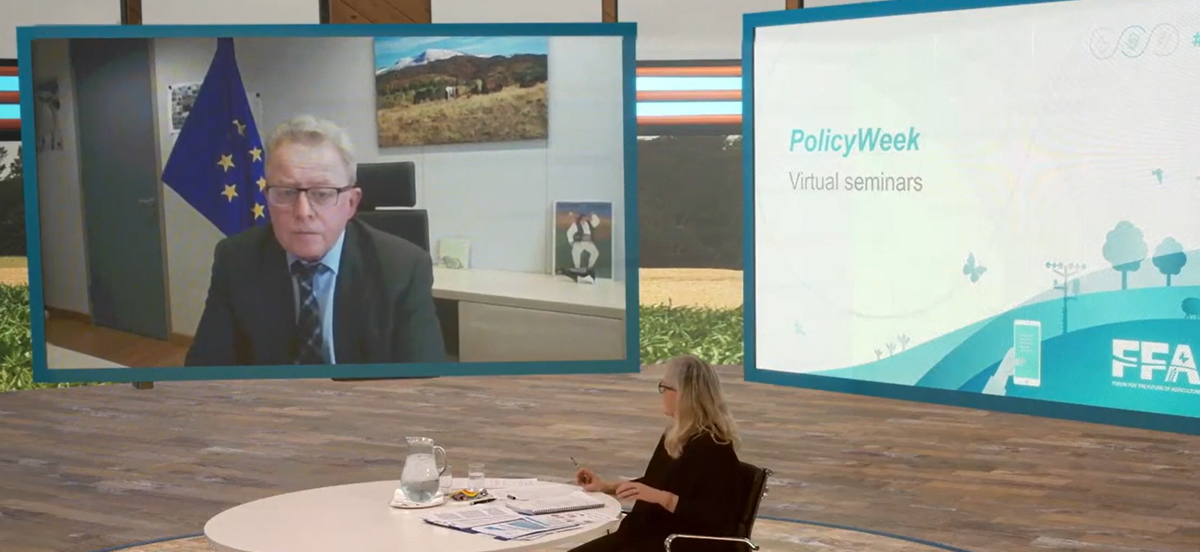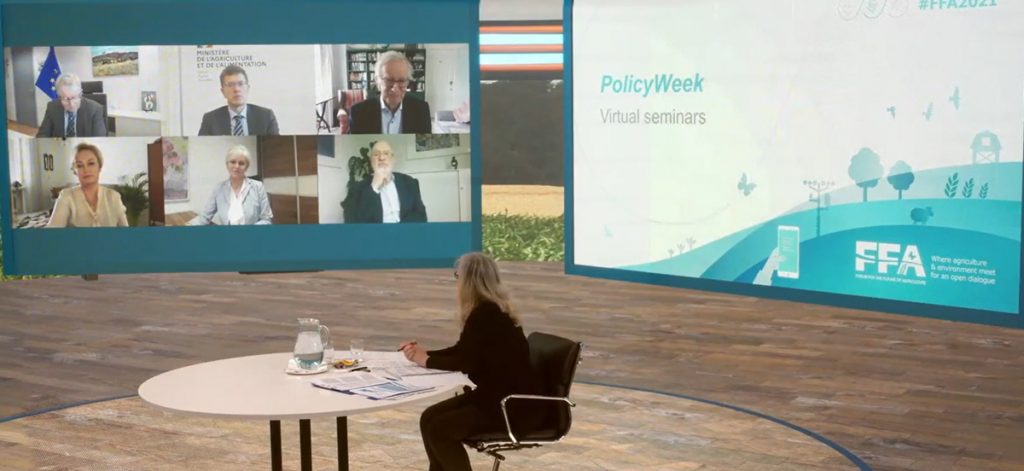Will the European Common Agricultural Policy (CAP) deliver for society?
FFA2021 Policy Week seminar summary
Wednesday, Mar 31, 2021
The new Common Agricultural Policy (CAP) comes during a pandemic and with high expectations; promising greater flexibility for Member States; delivering integration with the Green Deal and Farm to Fork; and ensuring sustainability the European countryside. Can it deliver on such different expectations? The question posed during the FFA2021 Policy Week event was whether these high expectations for the new CAP reform can genuinely deliver change for European society.
Opening the session, Janusz Wojciechowski, Commissioner for Agriculture, stressed that the CAP is delivering for society. He pointed to its role in food security by supplying high quality and high volume, affordable sustainably produced food. The CAP has an essential role in protecting the environment, climate, biodiversity, and animal welfare for the entire EU; and with the European Rural Development Programmes implemented across the 27 Member States, it actively counters depopulation by supporting jobs and economic development in the rural areas.
Frédéric Lambert, representing the French Ministry of Agriculture, described France’s preparations for the reform. He insisted that “the new CAP gives flexibility to Member States to adapt to local specificities” underscoring the importance of being able to adapt programmes to suit geographical conditions, but overall European ambition, particularly for the eco-schemes, should not be watered down.
In the panel discussion, Professor Allan Buckwell, RISE Foundation Research Director, was pessimistic about the CAP reforms. He described the policy as locked into a “structure set up over two decades ago”, failing to “deliver the environmentally public goods only farmers can supply or help rural diversification”. He argued that greening and eco-schemes should be moved from the annual Pillar One payment structure to the multiannual Rural Development Programme. He concluded: “More change is going to be required and we need to be ready for the 2027 reform”. A clear message to the Commissioner for Agriculture and other participants of the panel that many changes still need to occur before CAP reforms can be successful.
Elsi Katainen, MEP and Vice-Chair of the Committee of Agriculture and Rural Development, was more positive; but pointed out that the details of national policies would only be clear once EU policymakers have adopted the basic legal texts. She noted that the Green Deal targets focus on 2030, while those for the CAP on 2027. She rightly pointed out that both “the economic, social and environmental dimensions must be in balance” to achieve their objectives.
Monika Nebeská, Chairwoman of the Board, Agricultural Cooperative Všestary, brought the perspective of 25 years’ cooperative farming in the Czech Republic. She confessed concern at the impact of CAP reform with its high ambitions and the absence of an impact assessment on the Czech Republic’s strategy. The targets, she believes, “will lead to a significant drop in agricultural production, exports and farmers’ incomes”. This is thus leaving the CAP reforms as dangerous changes that will hurt Czech farmers and leave them more vulnerable to economic shocks and climate change effects.
Jeremy Wates, Secretary General of the European Environmental Bureau, criticised the CAP proposals and the current negotiations citing the need for a “robust methodology to track the climate impact”. These reflect a “disconnect with the science for climate change, biodiversity and pollution”. In the long term, “the farming sector will be in the front line of the losers,” he predicted.
Wrapping up the discussion, Commissioner Wojciechowski emphasised: “Farmers are not the problem. We need to see them as part of the solution.”
Prefer to watch the live presentation?
Click here to watch this and other sessions from FFA2021.


